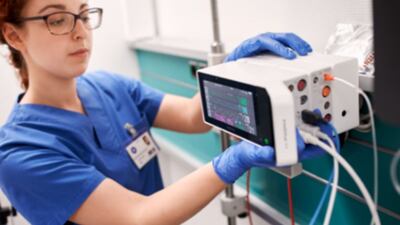26051 Merit Circle, Suite 102

LoneStar Heart Inc.
Addressing heart failure with an injectable biopolymer
LoneStar Heart's injectable biopolymer Algisyl-LVR represents a new advanced HF treatment strategy based on a medically accepted principle that a reduction in muscle tension and wall stress of the dilated heart will improve its function. The company, which originally envisioned Algisyl-LVR as a carrier for targeted delivery of biologics, drugs, or stem cells, discovered in animal studies that use of the biopolymer by itself had a profound effect on improving the mechanics of the heart.
More from Archive
Editor’s note: This is your final call to participate in the survey to better understand our subscribers’ content and delivery needs. The deadline is 20 September.
Editor’s note: We are conducting a survey to better understand our subscribers’ content and delivery needs. If there are any changes you’d like to see in coverage topics, content format or the method in which you receive and access Medtech Insight, or if you love it how it is, now is the time to have your voice heard.
Medtronic announced it received expanded MRI labeling for its DBS systems, which is critical, given that almost 70% of all DBS-eligible patients will likely need an MRI at some point in their care, says Ashwini Sharan, CMO for Medtronic Neuromodulation.
In this episode, Medtech Insight reporter Natasha Barrow speaks to LungLife AI CEO Paul Pagano. Lung Life AI is a US-based AIM-listed medical technology company that has developed a liquid biopsy test for the early detection of lung cancer called Lung LB. Pagano runs through the highlights of Lung Life AI journey to date and its future ambition for a strategic partnership. He also provides advice to similar diagnostic companies seeking reimbursement andcompliance with the US FDA Lab Developed Test ruling.
More from Medtech Insight
Under the terms of the new agreement, Philips will also begin bundling essential supplies – including ECG, noninvasive blood pressure (NIBP) components, and batteries – with its Medtronic-enabled monitors.
Bivacor aims to be first to the US market with a permanent total artificial heart, starting with use as a bridge to transplant. CMO William Cohn says data from countries with low transplant rates could support pivotal trials and long-term use.
Research recently published in JAMA Internal Medicine found that the FDA met its review timeline goals for the majority of breakthrough devices – but also revealed some apparent shortcomings in safety data supporting the submissions.






